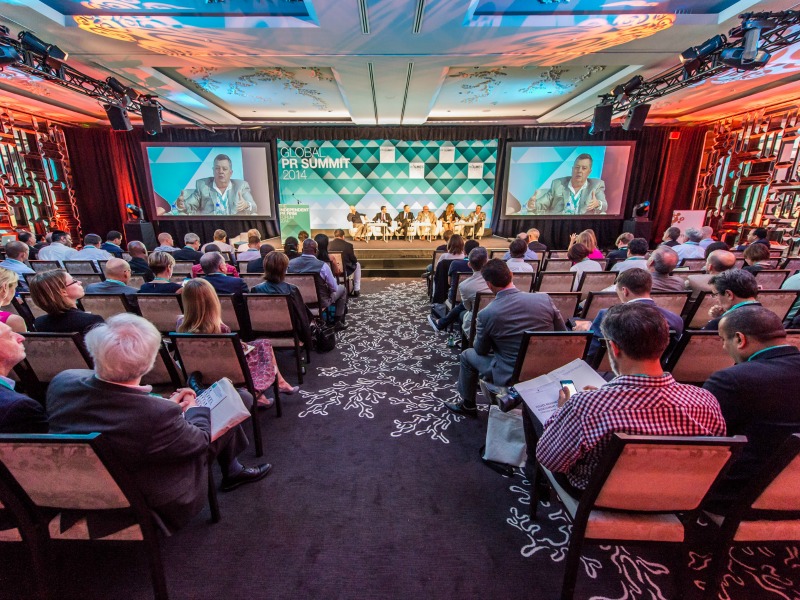Arun Sudhaman 27 Oct 2014 // 6:30PM GMT

MIAMI—The PR world's ability to glean cultural insights will prove pivotal in its battle for big data supremacy, delegates heard today at the Independent PR Firm Forum, which kicked off the 2014 Global PR Summit.
The Forum, which attracted a packed room of delegates to the St Regis Bal Harbour Resort, began with a provocative session on the value of data for independent PR firms, moderated by Holmes Report CEO Paul Holmes.
While every panellist accepted the basic premise that investment in data is no longer a luxury, there was a widespread consensus that data alone will not necessarily deliver the central brand-building role that the PR industry continues to seek.
"Everybody knows there is big data, but nobody knows what it means," said Sergey Zverev, founder/president of Russian PR firm Cros. "Do we have enough skill for big data or not? It's a big issue — without this skill we will lose to other competitors."
According to DeVries MD of creative and strategic services Adrianna Bevilaqua, the industry needs to focus, in particular, on its ability to separate facts from insights. It is the latter, she said, where PR agencies bring a genuine edge, thanks to their ability to understand cultural trends and shifts.
"I'm thinking less in terms of these sweeping generalisations," she said. "The amount of data that exists enables us to take a more tribe-based marketing approach. What is the zeitgest right now — what shifts are happening in our culture. Can we glean an interesting insight in terms of what consumers want?"
With that in mind, MWW chief operating officer David Herrick presented new research from his firm that aims to unpick what US consumers value most, based on a survey of 10,000 adults across the country. Among the key findings was the marked difference between millenials and baby boomers, particularly in terms of the former's attitude towards fashion and brands.
This kind of research is increasingly important for PR firms looking to showcase their quantitative skills. As 3rd Coast PR president and chief strategy officer Rich Timmons noted, though, it is the ability to move from mass data to 'hyper-targeted' insights that will really bring benefits to brands. "We think that PR is the lead discipline for that," said Timmons.
Advances in digital research, along with the explosion in social media, have led some to conclude that big data has been 'democratised', a trend which benefits agencies working with smaller budgets. Yet Jefrey Pollock, founding partner and president of political research consultancy, cautioned against using social media as a proxy for truly representative research.
"Our clients have been much more inclined to see social media scraping as 'elite chatter'," said Pollock. "It would be problematic to say that is representative of whatever audience you are trying to go after."
Yet, to reach a point where research provides a genuine competitive edge requires investment in different types of talent, something that may not always be feasible at smaller independent firms. Herrick advised making the first hire someone who could speak the language of data but still retain the strategic ability to deal with account teams.
"We need to think about how we start to build this function," said Herrick. "What you do in a 15-person firm is going to be very different from a 200-person firm."


































.jpg)
















